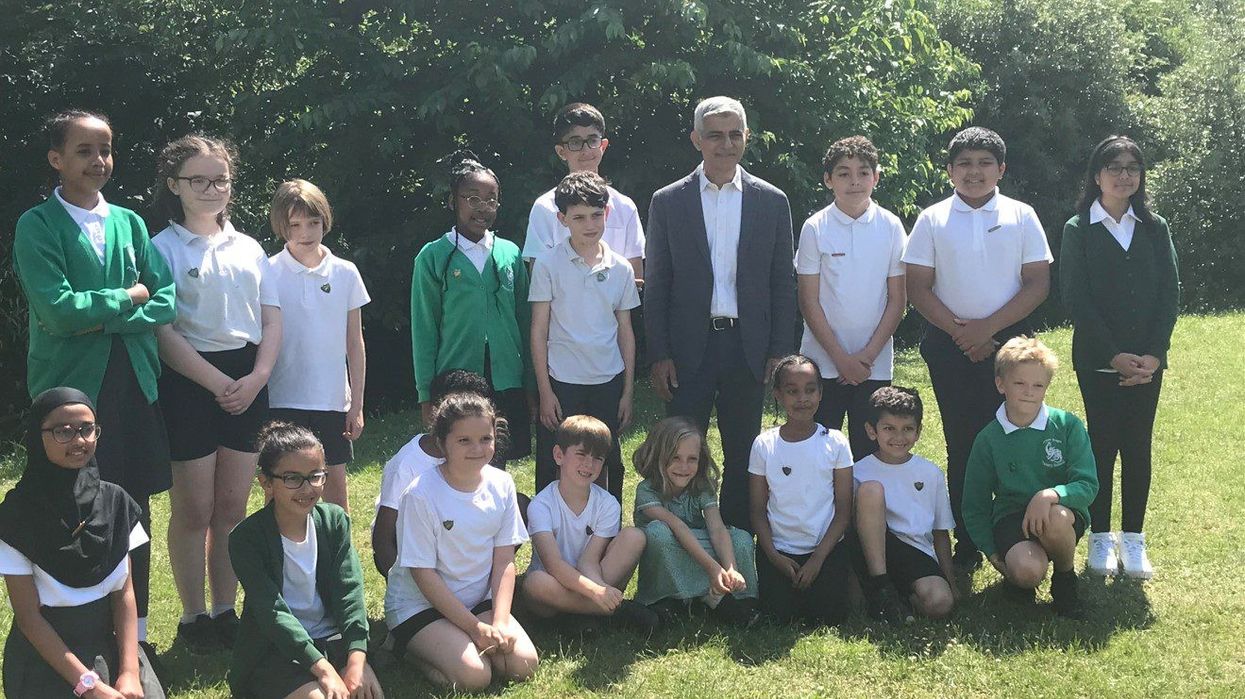THE London mayor Sadiq Khan has floated the idea of having fewer flights into Heathrow as he pushes clean air initiatives across the capital.
The airport, which falls within the boundaries of Hillingdon borough, is a major employer in the area. It is thought to support around 114,000 jobs, while directly employing around 75,000 directly, according to prepandemic figures.
Although the transport hub is good for jobs, it is also one of the area’s biggest polluters with nitrogen oxide and dioxide particles being released into the air from burning jet fuel and runway vehicles and visitor’s cars spewing exhaust fumes.
During a visit to a school in Hounslow, a borough that borders Heathrow, Khan spoke about clean air initiatives and his plan for lowering the airport’s carbon emissions.
He said: “I don’t think Heathrow should have a new runway. It should be better, not bigger, because of my concerns about the environmental consequences, but also noise pollution.
“The good news is Heathrow understands the importance of addressing issues around air pollution and the climate emergency. The outgoing chief executive has worked with us in relation to some policies, so they are trying to get more electric vehicles on the airport, they are encouraging staff to use public transport, they are talking to us about what we can do to work with them.
“So I’m encouraged by the response of Heathrow, but that is one of the reasons I oppose a third runway.”
Reducing the number of flights to and from Heathrow could be a solution, Khan said, adding it could be done in tandem with more sustainable aviation fuel.
“We don’t want more flights, definitely. We may have fewer flights with bigger aeroplanes, but also the fuel they use might be more climate friendly,” he said.
However, Dan Rutherford, a shipping and aviation director at the International Council on Clean Transportation (ICCT), had previously said this would unlikely to help the problem.
He told the BBC that it was best to avoid very small or very large planes, which tend to be less efficient than a standard singleaisle or small twin-aisle aircraft. Evidence suggests that less weight, both of the plane and cargo/passengers, helps with fuel efficiency, as does the age of the aircraft.
Boeing claims its Dreamliner uses 20 per cent fewer fuel per passenger than the older planes it replaces. According to Airbus, CO2 emissions from aircraft built today are 80 per cent lower than those from the 1970s.
The introduction of ULEZ [Ultra Low Emission Zone] in Hillingdon will cover visitors to Heathrow, even those driving from outside the city. The disputed policy, which is currently undergoing a legal challenge from Hillingdon Council, could see a reduction in the number of people coming by car, as they would have to pay the £12.50 charge on top of any parking costs.
Heathrow was recently found to be Europe’s busiest airport after dropping to second spot last November. According to global travel data firm OAG Aviation, more than four million passengers travelled on domestic and international flights in and out of the airport in March 2023.
Despite travel disruption, strikes and the pandemic, Heathrow saw 35,000 more passengers than Europe’s second busiest airport, in Istanbul, Turkey. (Local Democracy Reporting Service)




